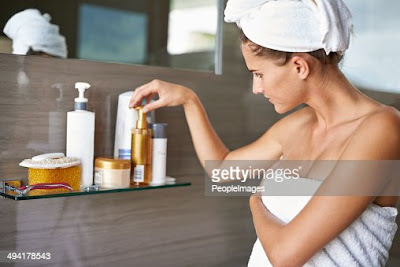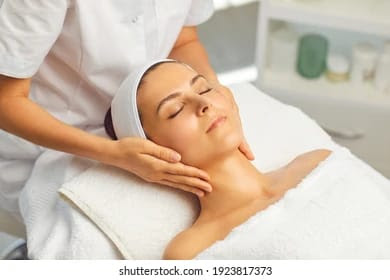WHY YOU SHOULD NOT CONSIDER SKIN BLEACHING
WHY YOU SHOULD NOT CONSIDER SKIN BLEACHING
For me, the women who bleach their skin do not understand the kind of harm they put themselves in. The black-complexioned woman or man as the case may be, has always proved to be an advantage over the fair-complexioned skin. Skin bleaching or skin bleachers are prone to different side effects or some major diseases that can be contracted.
Some of these problems or issues that are associated with skin bleaching range from side effects such as atrophy, striae, telangiectasia, acne vulgaris, allergic and irritant contact dermatitis, steroid rosacea, hirsutism, infection and ochronosis have been reportedly linked with skin lightening products (SLP) (Cristaudo et al., 2013; Ajose, 2005). As if this was not bad enough, users can, later on, develop other skin complications such as Cushing's syndrome, diabetes Mellitus, hypertension, organ failure involving the kidneys and liver, cancers and ocular complications such as cataract and glaucoma (Cristaudo et al., 2013; Ajose, 2005). All of these listed bleaching side effects paint a hopeless situation for these women that have already bleached their skin.
The U.S. spent over $2.3 billion on skin bleaching in 2020, global cosmetic experts also projected that the skin bleaching market will grow to about $12.3 billion by 2027. A World Health Organization (WHO) report in 2011, reported that 77% of women in Nigeria apply and use skin bleaching products regularly. Nigeria tops the list of African countries that use skin-bleaching products, compared with Togo - 59%, South Africa - 35% and Senegal - 27%. In another monitored household items survey, skin-bleaching creams were reported to be the 4th most sought-after household items by African women after essential items like Soap and toiletries, milk and tea.
The Skin bleaching products market has continued to expand, even after different African countries banned it at a point in time. The sale and usage of skin bleaching were banned in Rwanda 2019, and also in South Sudan in 2019. In addition, it was banned in South Africa in 1990, and 2017 in Ghana. The usage was not banned in Nigeria, only the use of some of the chemicals such as mercury, steroids and high level of hydroquinone were banned. In another reviewed study on how skin bleaching is used, the findings showed a prevalence of 27.7% globally, while the African estimates stood at 27.1%. A study on the prevalence of skin toning among female university students in Ghana also reported 40.9%, and Nigeria's stood at 77%. The skin bleaching market found a temporary base in Lagos, Nigeria. The number of people using skin-lightening products is rising daily, even with a very low minimum wage and a high cost of living.
To solve Africa’s skin-bleaching predicament, there is a need to understand why a certain section of the population feels there is need to understand what prompts the need to bleach their skin from their natural complexion. Africa’s history and colonial legacy heavily influenced some decisions. Another identified issue is the perception that being light-skinned is a sign of beauty, superiority and socio-economic status. Another debatable factor is also, media representation and lack of public enlightenment and education. There is also a social bias against darker-skinned women. It is also believed that African men prefer women with lighter skin.
At the root of the skin bleaching problem in Nigeria is a cultural issue. So, the solution also has to be culturally defined. This means re-orientation in the form of public awareness, campaigns, education on the negative effects of skin bleaching and appreciation of the natural skin colour. The media and the entertainment industry also need to play their role in portraying how the colour of the skin is perceived. Cosmetic organizations and brands also have a responsibility to play, they can show how skin colours are portrayed in the media (Stears.com).



Beautiful work!
ReplyDeleteWeldon🥰
ReplyDeleteNice work
ReplyDeleteNice
ReplyDeleteThe culture of beauty must focus òn the natural. Products that accentuates all that helps.
ReplyDeletenice one 👍🏽
Deletethis is beautiful. nice one. keep it up
ReplyDeleteWell written and sources cited. Keep up the good work
ReplyDeleteVery interesting article. Hope it goes viral
ReplyDeleteThis is very educative
ReplyDeleteA very good piece
ReplyDeleteNice
ReplyDeleteGreat research
ReplyDeleteYou nailed it. Very educative, thanks so much for this knowledge.
ReplyDeleteWow what an interesting and educative piece, thank you.
ReplyDeleteVery informative
ReplyDeleteYou're doing well Dochi.. Cheers
ReplyDeleteSo true. Nice 1
ReplyDelete👍🏾
ReplyDeleteWeldone Dochi
ReplyDeleteGood work Jenny
ReplyDeleteAwesome .... Good one there
ReplyDeleteI really feel that skin bleaching is a degrading act of not loving your natural you and lack of self confidence
ReplyDeleteFor me bleaching is naturally wrong, it harms your body both now and in later age
ReplyDeleteNice one
ReplyDeleteA great article, very educative 👍🏽
ReplyDeleteNice work keep it up
ReplyDeleteThis is great, i hope you will be consistent and as a matter of fact seek opportunities to improve so you can get better and better
ReplyDeleteNice write up jenny. As real africans we must protect our melanin so kudos to you and your team
ReplyDeleteA nice publication
ReplyDelete👍
ReplyDeleteU really did well, am not in anyway surprising at ur growing skills. Keep up the good work.
ReplyDeleteMy best facial plug and massager
ReplyDeleteInteresting, and very educating
ReplyDeleteNice one
ReplyDeleteNice write up
ReplyDeleteBeautiful
ReplyDeletehi
ReplyDeleteThe clinic’s services reflect years of experience and innovation.Their approach to skin rejuvenation and advanced treatments is both safe and effective, which builds great trust among patients. Best Dermatologist in India
ReplyDelete